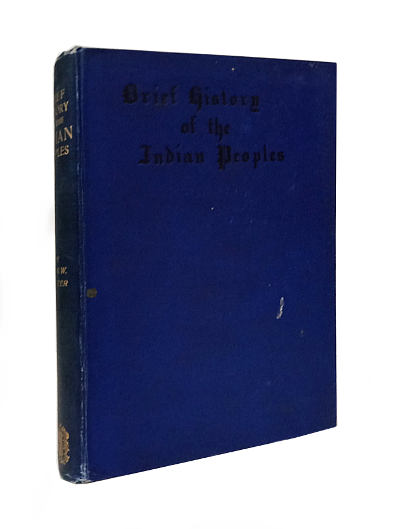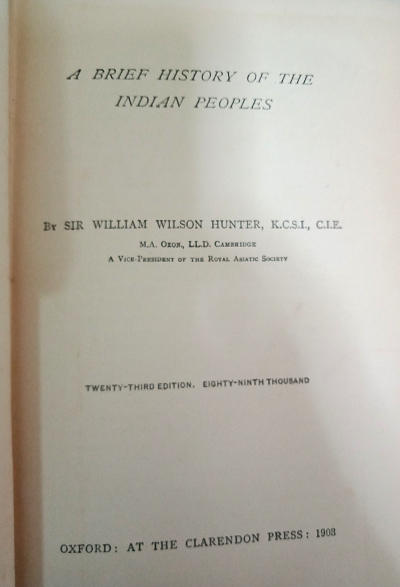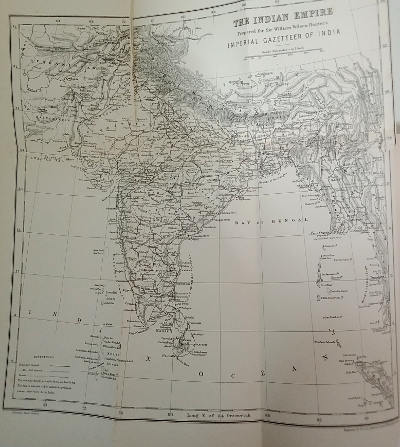From the preface:
In this book I try to exhibit the growth of the Indian peoples, to show what part they have played in the world’s progress, and what sufferings they have endured from other nations. Short Indian histories, as written by Englishmen, usually dismiss the first tow thousand years of their narrative in a few pages, and start by disclosing India as a conquered country. This plan is not good, either for Europeans in India or for the Indians themselves; nor does it accord with the facts. As long as Indian history is presented to the Indian youth as nothing but a dreary record of disunion and subjection, our Anglo-Indian schools can scarcely become the nurseries of a self-respecting nation.
Contents include:
The Country
The People
The Non-Aryans
The Aryans in India
Buddhism, 534BC to 1000 AD
The Greeks in India, 327 to 161 BC
The Scythic Inroads, fro about 100 BC to 500 AD
Growth of Hinduism, 700 to 1500 AD
Early Muhammadan Conquerors, 714-526AD
The Mughal Dynasy, 1526-1761
The Marathas, 1650-1818
Early European Settlements, 1500-1700
The Foundation of British Rule in India, 1746-1805
The Consolidation of British India
The Sepoy Mutiny of 1857
India under the British Crown
About the author (from Wikipedia):
Sir William Wilson Hunter KCSI CIE (15 July 1840 – 6 February 1900) was a Scottish historian, statistician, a compiler and a member of the Indian Civil Service.
He is most known for The Imperial Gazetteer of India on which he started working in 1869, and which was eventually published in nine volumes in 1881, then fourteen, and later as a twenty-six volume set after his death.
He reached Bengal Presidency in November 1862 and was appointed assistant magistrate and collector of Birbhum, in the lower provinces of Bengal, where he began collecting local traditions and records, which formed the materials for his publication, entitled The Annals of Rural Bengal, which influenced among others the historical romance Durgeshnandini of Bankim Chandra Chattopadhyay.
In the winter of 1898–1899, in consequence of the fatigue incurred in a journey to the Caspian and back, on a visit to the sick-bed of one of his two sons, Hunter was stricken down by a severe attack of influenza, which affected his heart. He died at Oaken Holt on 6 February 1900.
S. C. Mittal believes that Hunter “represented the official mind of the bureaucratic Victorian historians in India”, of whom James Talboys Wheeler and Alfred Comyn Lyall were other examples.





